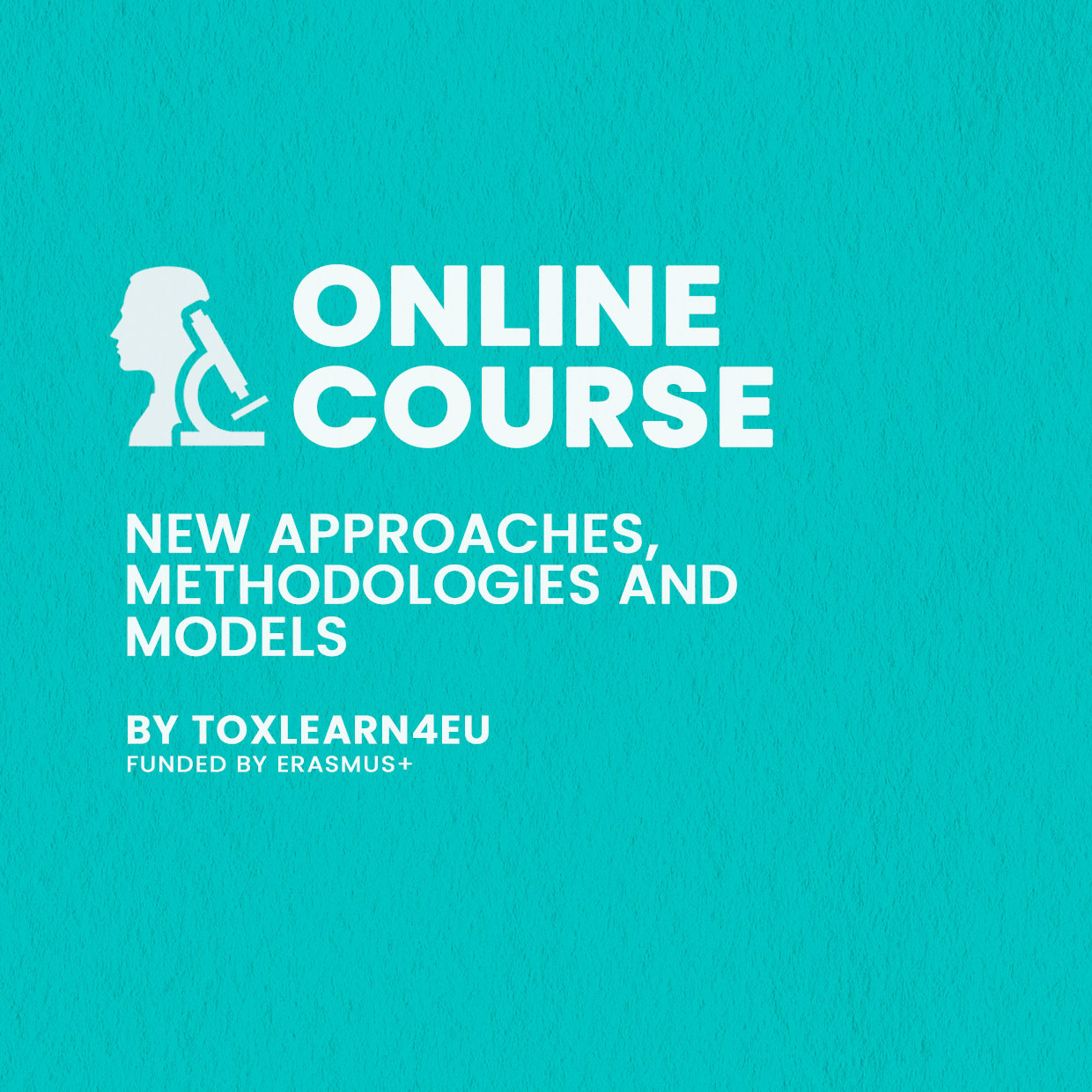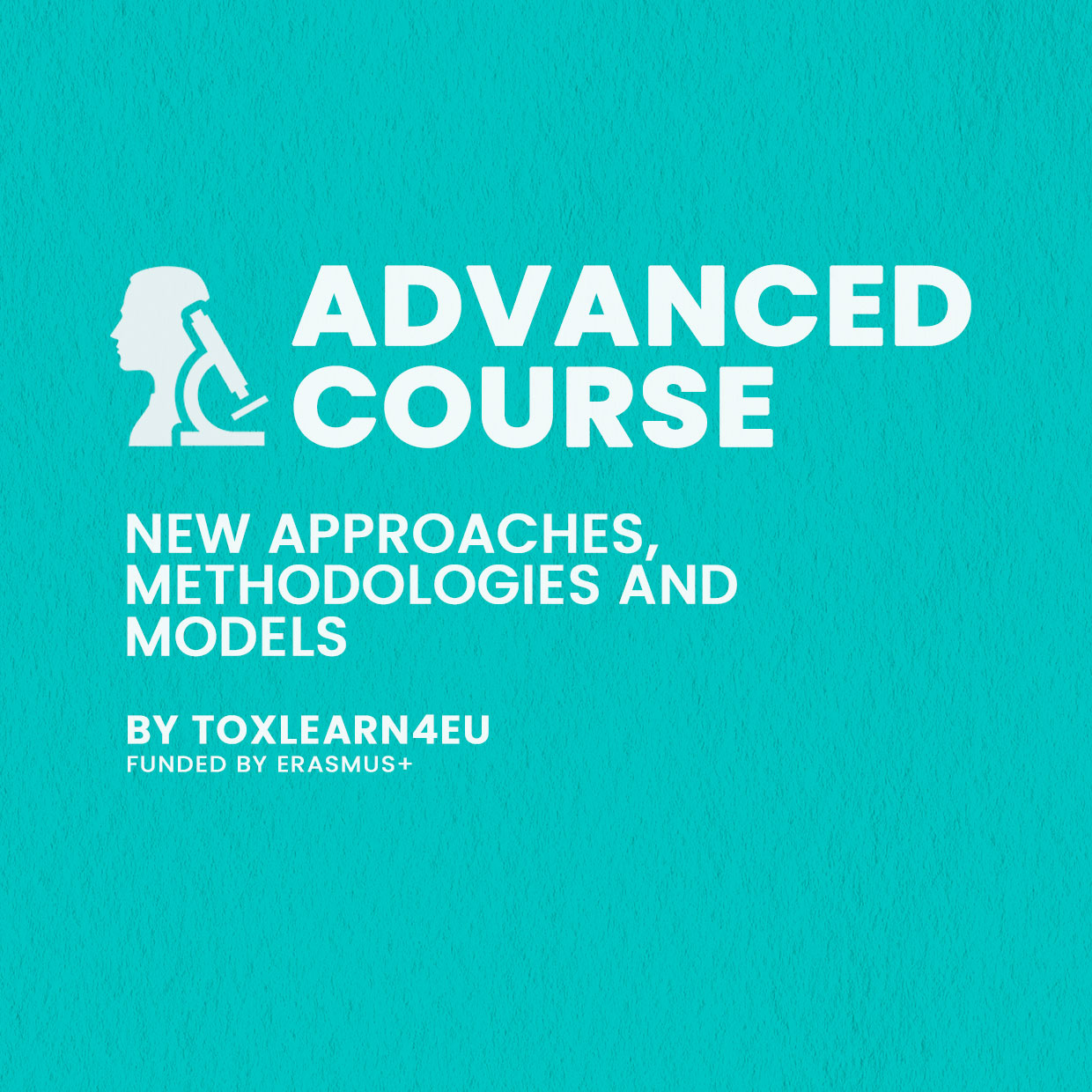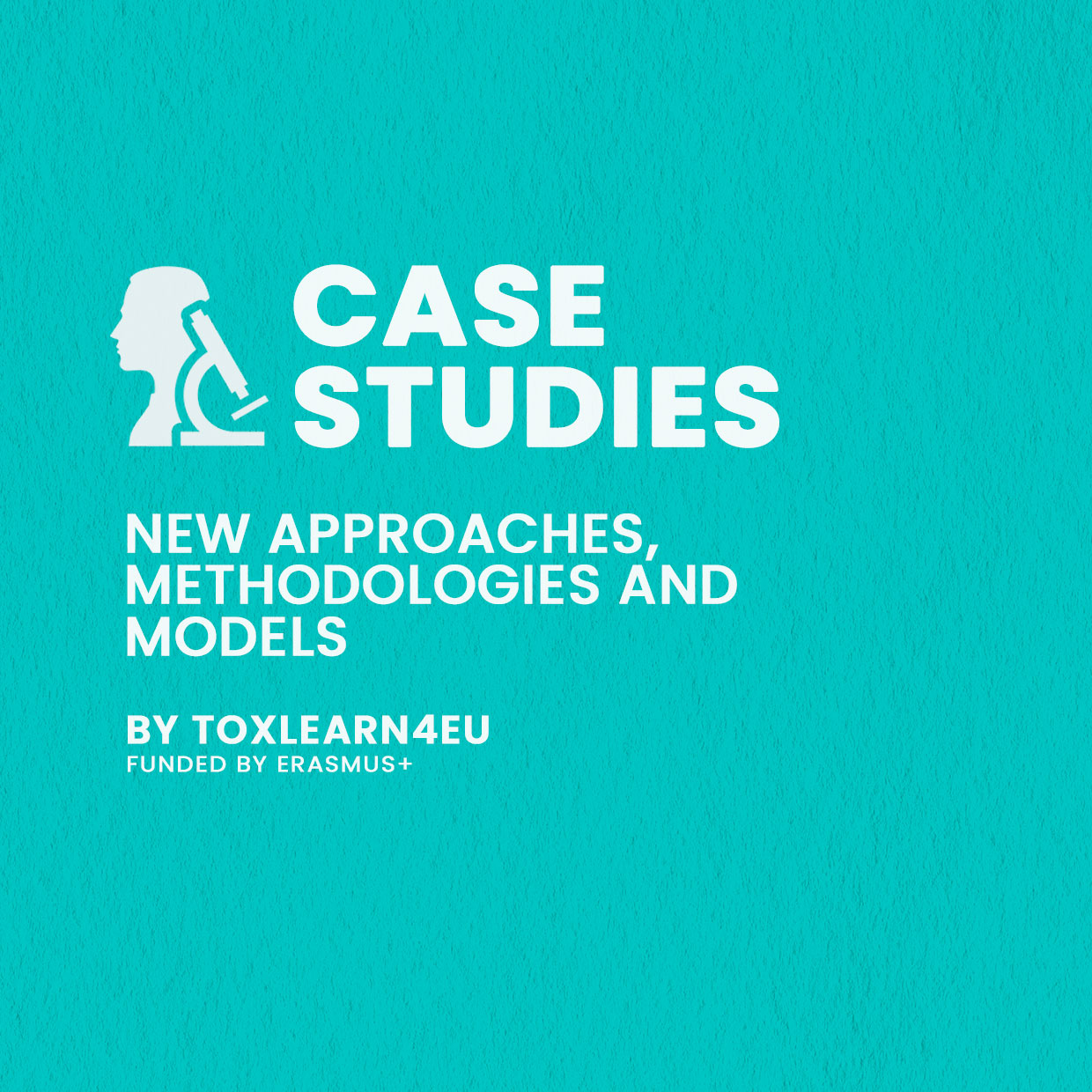NEW APPROACHES, METHODOLOGIES AND MODELS
The continuous advancement of toxicology requires innovative methodologies and experimental models that improve the accuracy, efficiency, and ethical standards of scientific research. This work package of the ToxLearn4EU project (WP4) is dedicated to exploring cutting-edge approaches in toxicology, bridging the gap between classical toxicological methods and modern technological advancements.
By integrating molecular techniques, computational tools, and alternative testing strategies, we aim to provide researchers, students, and professionals with the necessary knowledge to apply these methodologies in biomedical, environmental, and regulatory toxicology. Through a series of online courses and expert-led lectures, participants can gain hands-on experience in state-of-the-art toxicological approaches.
Educational Resources
This work package includes a series of high-quality educational materials, structured into four key online courses, which are also available on the project’s YouTube channel:
- Online Course on Gene Expression Analysis Using Real-Time PCR: Focuses on the principles and applications of quantitative PCR (qPCR) in toxicology, emphasizing gene expression analysis as a tool for assessing cellular responses to toxicants.
- Online Course on The Redox Balance in Plant Research: Explores the role of oxidative stress and antioxidant mechanisms in plant toxicology, providing insights into how plants respond to environmental pollutants.
- Online Course on New Approaches and Methodologies in Toxicology: Introduces emerging toxicological methods, including omics technologies, bioinformatics, in vitro models, and alternative testing approaches.
- Advanced Course on New Approach Methodologies – Impact on Humans and Ecosystems: A deep dive into regulatory and scientific aspects of New Approach Methodologies (NAMs), emphasizing their applications in risk assessment, public health, and environmental protection.
- Problem-Based Learning (PBL) Case Studies: This work package also features a selection of case studies designed to promote problem-based learning, giving students the opportunity to apply their knowledge to real-life scenarios in a practical way
All resources are freely accessible, featuring recorded lectures, case studies, and interactive learning materials to facilitate a comprehensive understanding of modern toxicological research.
Objectives and Impact
The main objectives of this work package are:
- To introduce state-of-the-art toxicological methodologies that enhance research quality and innovation.
- To promote alternatives to animal testing by focusing on modern in vitro and in silico approaches.
- To bridge the gap between academic research and regulatory toxicology, ensuring the application of scientific advancements in real-world risk assessments.
- To enhance multidisciplinary knowledge, integrating insights from molecular biology, bioinformatics, and environmental sciences.
Scientific and societal impact:
- Improving toxicological assessments: These new methodologies contribute to more precise and reliable toxicity testing, leading to better risk evaluations.
- Strengthening sustainability and ethics: The promotion of non-animal testing approaches aligns with international efforts to reduce animal experimentation.
- Supporting policy and regulation: By providing researchers and professionals with the necessary expertise, this section helps shape future regulatory frameworks and improve environmental and public health policies.
- Enhancing educational innovation: The courses provide open-access learning opportunities for students, researchers, and regulatory experts across Europe and beyond.
By engaging with these educational resources, participants will be equipped to apply modern toxicological approaches in their scientific and professional careers, contributing to a safer and more sustainable future in toxicology research and environmental protection.



